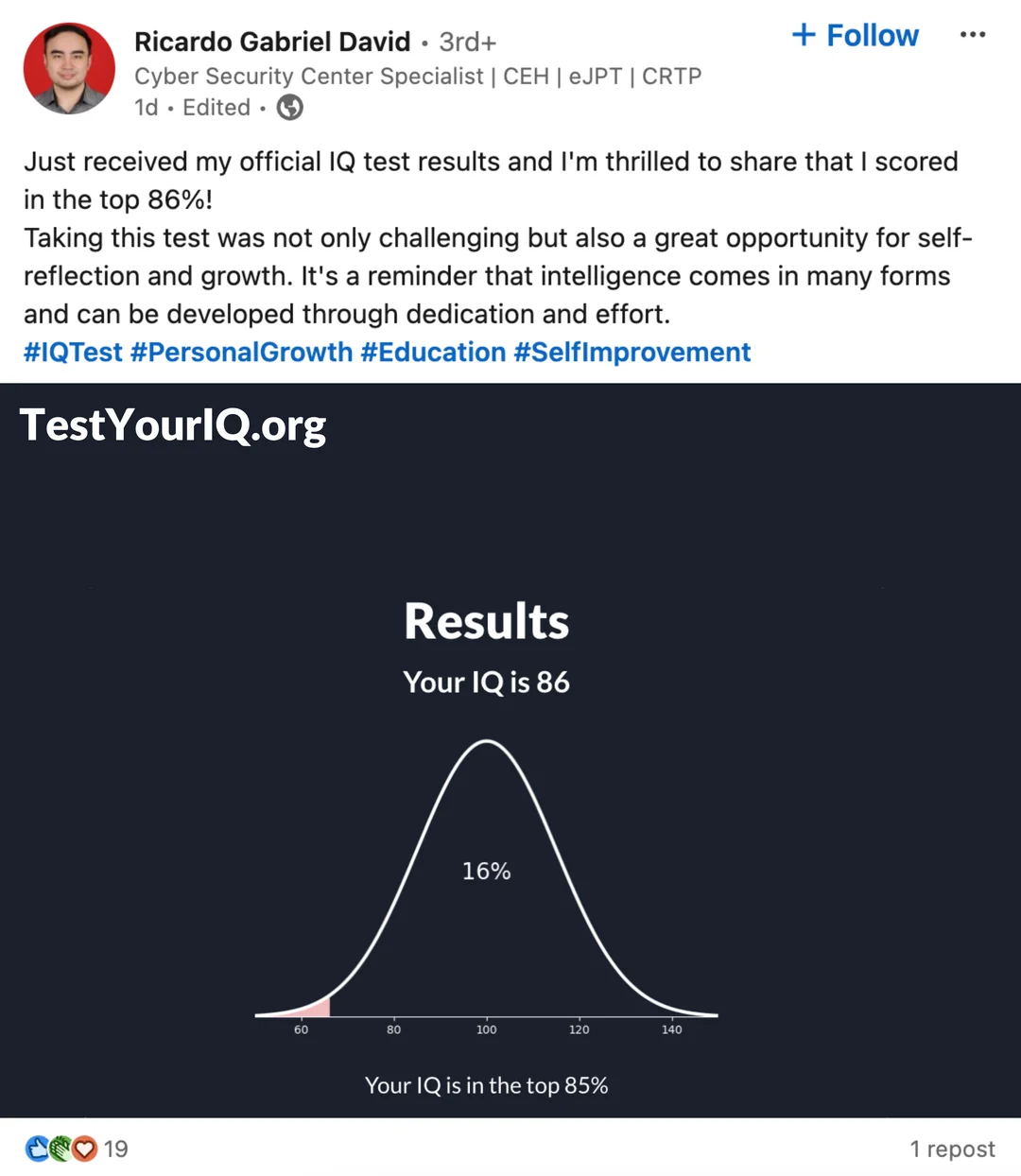this post was submitted on 03 Apr 2025
448 points (98.9% liked)
LinkedinLunatics
4251 readers
784 users here now
A place to post ridiculous posts from linkedIn.com
(Full transparency.. a mod for this sub happens to work there.. but that doesn't influence his moderation or laughter at a lot of posts.)
founded 2 years ago
MODERATORS
you are viewing a single comment's thread
view the rest of the comments
view the rest of the comments

Oh yeah, because like basically everything else, IQ testing can be a learned skill.
But again, that goes back to factors like education and free time and nutrition and stress, all of which have a bigger impact on your mental capacity than a native aptitude eugenists are looking for.
I mean, they don't recognize the Q part. What's the point of chasing outlayers when the median is what matters.
The person with the 100 IQ can be scrounging a subsistence living, pounding widgets on an assembly line, or crafting high art, entirely dependant on the social structure they're born into.
Sure, but you need to be careful about what the median represents. It doesn't represent the median of all humans, just the humans that have taken the test, and it only reflects performance on the test. This can be useful, but it gets used for a lot of stuff it really shouldn't (e.g. comparing results from one region w/ another, when those regions have very different education systems and thus exposure to different sorts of problem solving).
They could also be a professor or other highly educated person. It all depends on how familiar they are with the concepts covered by the test, how well they were feeling that day, how well the questions were worded, how much time they took, etc. There are a ton of variables, and your score on a test could vary quite wildly between takes.
It's just not a good general measure of much of anything. It can be helpful in a clinical setting, though, to diagnose things like neurological divergence and whatnot, but it isn't a particularly good test of "intelligence," whatever that's supposed to mean.